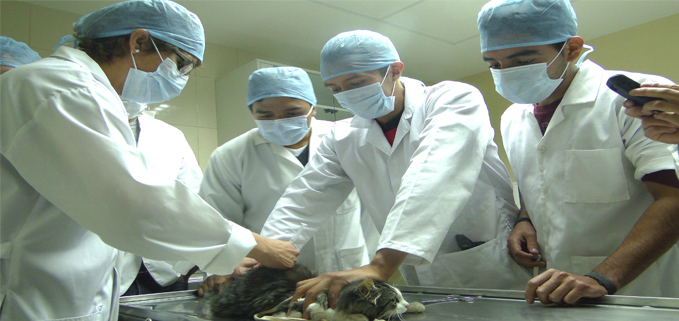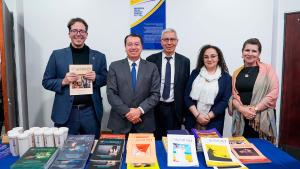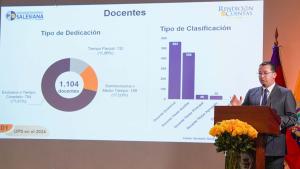UPS fosters animal welfare through research
UPS fosters animal welfare through research

Professors Juan Leonardo Masache Masache and Carlos Mínguez Balaguer along with other members from the GlobalGen Research Group have published a new paper titled "Oophorectomy in dogs", which has already been indexed to SCOPUS (SJR), Web of Sciencie (JCR), Scielo, LatiNdex, CAB, Redalyc and others. The aim of the article is to improve the well being of sterilized animals. The research was conducted in the "PoliVet" veterinary clinic, which is located in UPS-Cuenca and used by the veterinar medicine major.
This research determined the type of surgery needed to appropriately sterilize female dogs through a less invasive surgery that fosters the animal's welfare.
There are two surgical methods for sterilization (OVE, removal of ovaries ) according to the type of approach of the abdominal cavity to access the ovaries. One is medial approach (celiotomía ) which involves making the incision in the central part of the abdomen or lateral approach ( flancotomía ) consisting of an incision in the side of the abdomen.
Currently, there are no studies indicating the most appropriate type of surgery in order to care for animals' welfare and avoid post-surgical problems. Vets usually chose a technique according to their personal preferences and with no scientific arguments.
The study shows that the lateral approach ( flancotomía ) is the most appropriate to ensure animal welfare since it reduces operating time, presents less bleeding and lower pain levels. The GlobalGen research group and Veterinary Medicine major suggest, based on their study, that vets prefer this technique.





Follow us
Follow us